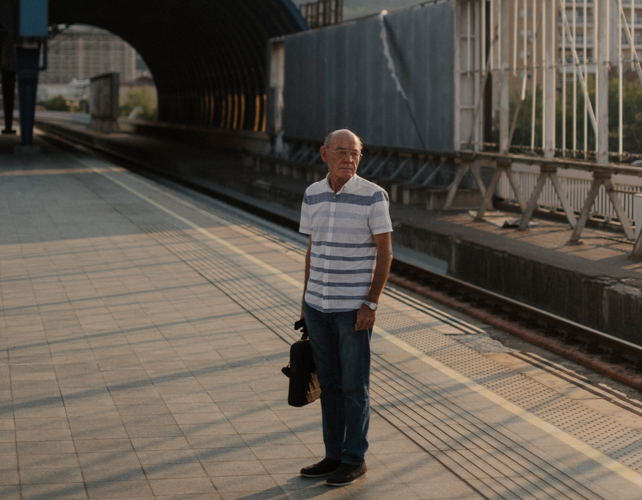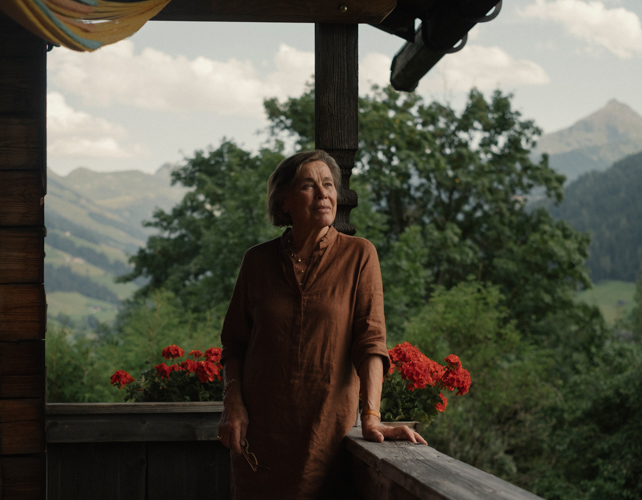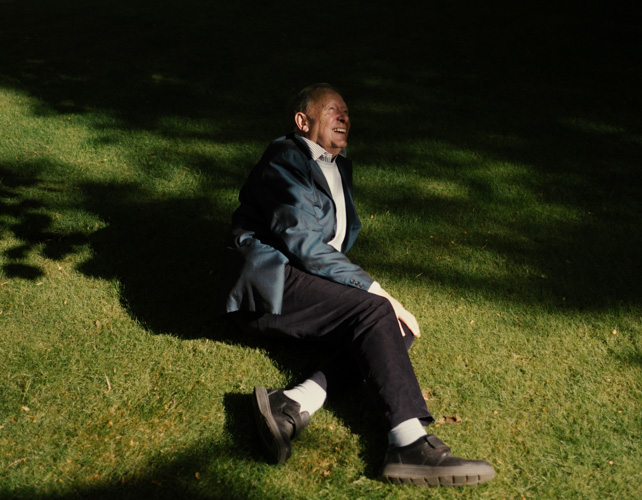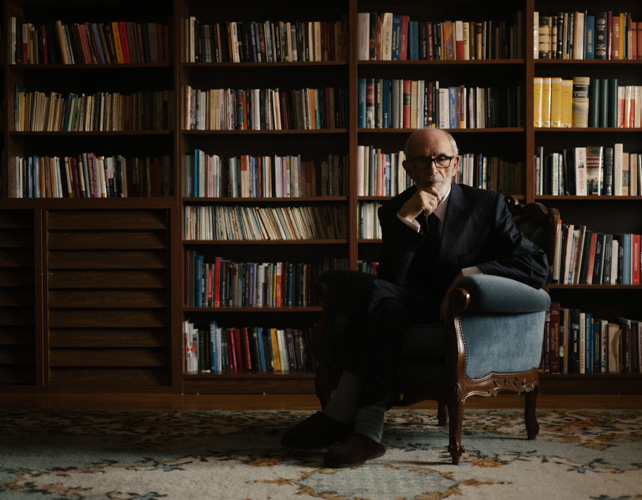Dimitar Belchev is a former electrical engineer and diplomat, born 1946 in today’s North Macedonia. Growing up in the capital Skopje his youth was shaped by two events, the flood in 1962 and the earthquake one year later. As a Red Cross volunteer Belchev began to take on responsibility early on. Afterwards, until his graduation at the Electro-Technical-Faculty in 1965, Belchev travelled a lot – to almost all European countries. He was an active member of the youth travel organization, the scouts and the mountain climbers. These experiences not only shaped his cultural but also political awareness.
Still Belchev’s first job was at Macedonian Railways from 1972 until 1982 where he conducted the planning, design and construction of power stations for propulsion of electric trains. After another ten years as a representative to Macedonia on behalf of a large commercial enterprise, he was appointed Undersecretary for Economic Affairs at the Ministry of Foreign Affairs in 1992. In this position he participated in the negotiations for accession of the Republic of Macedonia in the specialized agencies of the United Nations and worked for Macedonia’s Mission to the European Union.
In his conversation with Meglen Andreevski he talks about his interest in radio and computers as well as books, what this has to do with the history of his family and why he is still committed to various NGOs organising youth exchange programmes.
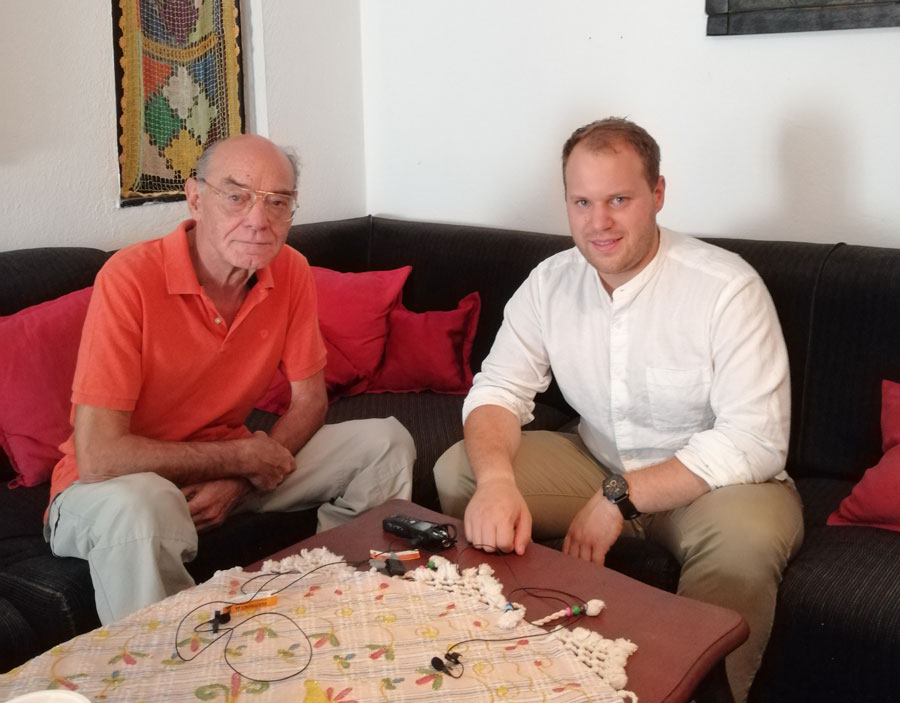
Dimitar Belchev was interviewed by Meglen Andreevski, who was born in Skopje. After graduating from University of Erlangen-Nürnberg as a Political Scientist Andreevski now works as a project management consultant.
Interview Highlights
On education
With lots of energy, our educators, that is, our teachers of the related subjects, enabled us to gain knowledge and skills that served as a solid basis for when we entered university, or later in life, when we got jobs. I remember that the most successful among us were selected to attend various gatherings in ex-Yugoslav republics – I went to Bosnia and Herzegovina, to Croatia. We also welcomed children from there to our homes. We always stayed with families, that is, we were accepted there, we would stay two or three days with some family and then there would be a reciprocal. We would welcome them to our homes. I keep in touch with some of them even today – it is nice for us to hear each other on the phone. We ask after each other’s health and how our grandchildren are doing.
On home and origin
So, what I remember is that a lot of people gathered in our home, all of them former partisans, some famous partisan commanders, and the discussions were primarily focused on that grievous period of Macedonian history, the pre-war period and the war times, the occupation, the partisans’ life. What would be interesting to point out? There was a certain unease – my father had no nearby relatives and my mother lost her family – all younger than her – during the war. Those are probably the scars that made the biggest impression on us; we understood that a very perplexing period had ended, that it was altogether different from the period we lived in, which was free from any threats. Their insistence that we devote ourselves to school, to study, probably distanced us from what was a decisive plight for them. Thus, I suppose that my younger brother, who dedicated his life to photography very early on, and who took a different direction in his development as a human being, was even more distanced from all of that.
On the history of Europe
Europe started as a political project, based upon the identification of the reasons that led it into conflict before. When that moment was defined and when the major European leaders said, ‘let’s create a mechanism that will keep us from clashing again’, that idea then naturally attracts new components that complement each other. Most likely, the issues of education, culture and some other aspects of their shared existence will have their turn later on, but at this moment their time has yet to come. There is another task, that is part of internal political system building, and it is that of strengthening the institutions for European internal democracy to such a degree that their officials can be viewed as trustworthy.
The cultural project is still in its infancy. I would say that there are always some interesting endeavours. This attempt here is one of them, right? To draw simultaneous distinctions regarding how Europe is viewed at a given moment.
On freedom
Well now, if we consider how my generation fared. My generation lived in a free country that won the right to use its own language in official communication for the first time; the right to choose its own official name for the first time, and it is only natural for us to continue operating in that manner. We have now arrived at a situation in which we are deprived of our personal freedoms and are hindered by external factors and influences. Apparently, collective freedom within these European constellations has its limits, has real limits. It is a fact that, as a state, as a subject, we have not been able to enjoy that freedom since the referendum for independence. We are forced to try and realize that freedom on a daily basis, within the boundaries of what is known as ‘real politics’. And to try to somehow reach the point where the notion of freedom – so self-explanatory in some other countries – won’t be so problematic for us. We can see that real politics does have constraints – sometimes visible, sometimes invisible, but real nevertheless. For this reason, a lot of naivety and grand expectations won’t overcome them. What it takes is a lot of prudent caution, we what we refer to in Macedonian as ‘stepping on eggs’. How do we cross that road and get to the same level as the other countries? Without bringing up again the same political topics, let’s just say that a demand to change one’s own official name is certainly not a notion of freedom in Europe.
On the future
So I wish for the political system to be constructed in such a way that it will allow for rational political thought to somehow be articulated to the broader public and that it will enable democratic methods to be used to drive extremism into a corner. We will certainly deal with extremism here – there is a lot of fertile ground for extremism to grow in Macedonia. There is linguistic diversity, religious diversity, ethnic diversity, political diversity and some extremism will emerge, serving as a trigger to a bigger problem. The younger generations grew up perplexed by the two-decades long ban from Europe, with a political environment that made them much less free than we once were. Yet after a very long time, they can now at least experience the freedom of movement.
